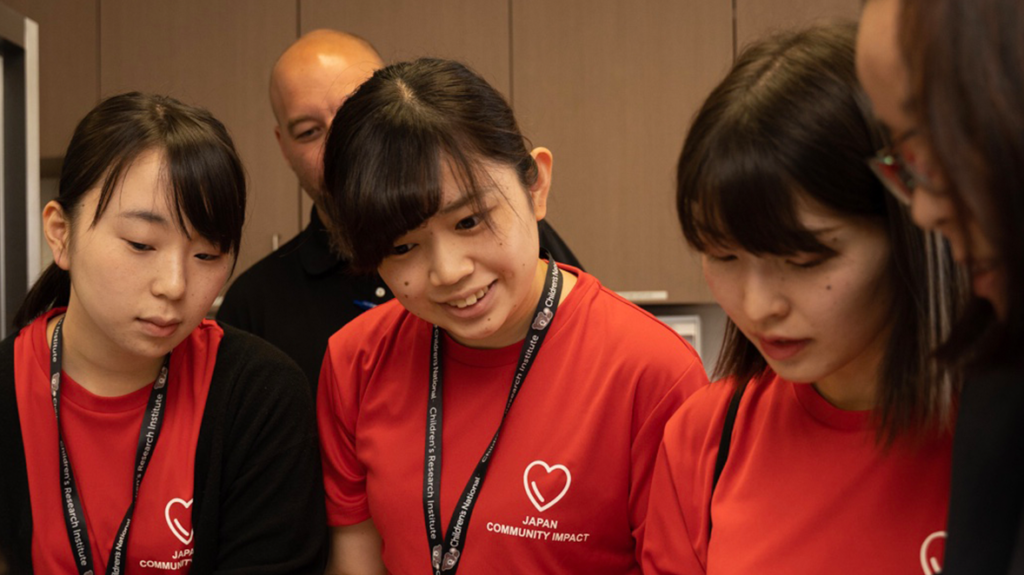This month, Rutgers School of Nursing welcomed the fifth team of Japanese nursing students from the TOMODACHI Initiative to New Brunswick. Born out of support for Japan’s recovery from the Great East Japan Earthquake in 2011, the initiative invests in the next generation of Japanese and American leaders through educational, cultural, and leadership program exchanges.
Participants undertake an intensive U.S. study tour that includes a two-day visit to Rutgers School of Nursing and provides disaster simulation education to increase their confidence, develop critical thinking skills, and improve emergency response techniques.
Injured patients flooded the simulated emergency room on stretchers and first responders were brought in wheelchairs. With actors in special effects makeup, the training allowed participants to take risks and learn from those risks, without causing serious outcomes and under the guidance of School of Nursing and Robert Wood Johnson University Hospital staff.
“The benefits of doing simulations are that we can have patients and participants enter a real-life world,” says clinical instructor Anthony Filippelli in a video produced by the School of Nursing. Filippelli says that preparation for these simulations involves spending “a lot of time with moulage to make sure the patients visually have injuries which makes the simulation very, very lifelike.”
Overseen by Suzanne Willard, this cross-cultural partnership is facilitated by the Rutgers Center of Global Health on an annual basis to create and enhance globally focused research, education, and service-learning activities. Willard is the associate dean for global health at the School of Nursing and a Rutgers Global Health Institute core faculty member.
Read the full story and watch the video on the School of Nursing website.

